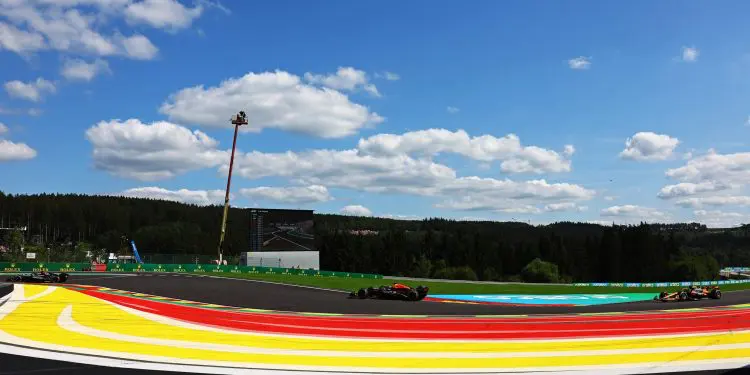The iconic Belgian Grand Prix at Spa-Francorchamps has secured its place on the Formula 1 calendar with a new six-year contract, ensuring its continuation in the sport. However, under this agreement, the race will rotate on and off the schedule, marking a significant shift for one of F1’s most historic venues.
A Rotating Future for Spa
After years of uncertainty and one-year contract renewals, Belgium’s new deal guarantees its presence in 2026, 2027, 2029, and 2031. This rotation aligns with Formula 1’s strategy to balance its European heritage while accommodating a growing number of new global venues.
While Spa will no longer be an annual fixture, the multi-year contract offers stability and planning security for its promoters, ensuring the venue’s ongoing legacy in the sport.
The Rotational Shift: Why Now?
Formula 1, under Liberty Media, has faced increasing demand from countries worldwide to host races. As part of this expansion, F1 has considered rotating certain European events to make room for new venues in emerging markets.
Spa’s rotational role may provide space for new flyaway races as early as 2028, with Thailand, South Korea, and Rwanda all vying for a spot on the grid. However, some relief comes from the recent announcement that the Dutch Grand Prix at Zandvoort will bow out after 2026, reducing scheduling pressures.
What This Means for Fans and Spa’s Legacy
While Spa will no longer enjoy its status as an ever-present event, its future remains secured for the long term. The legendary circuit, known for its thrilling Eau Rouge-Raidillon section and unpredictable weather, will continue to challenge drivers and entertain fans in alternating years.
For fans, the six-year commitment means the event’s place in F1’s history and future is safeguarded, even if they won’t see the likes of Max Verstappen and Lewis Hamilton taking on Spa’s twists and turns every year.
Looking Ahead to 2028 and Beyond
The 2028 gap in Spa’s schedule reflects F1’s evolving landscape. Speculation points to Thailand as the leading candidate to fill the slot, with its burgeoning motorsport fanbase and state-of-the-art facilities. Meanwhile, South Korea’s push for a return and Rwanda’s aspirations to debut as Africa’s second race alongside South Africa highlight the sport’s expanding global footprint.
As Formula 1 continues to innovate and globalize, Spa-Francorchamps remains a symbol of F1’s deep roots, standing tall even amid change.







